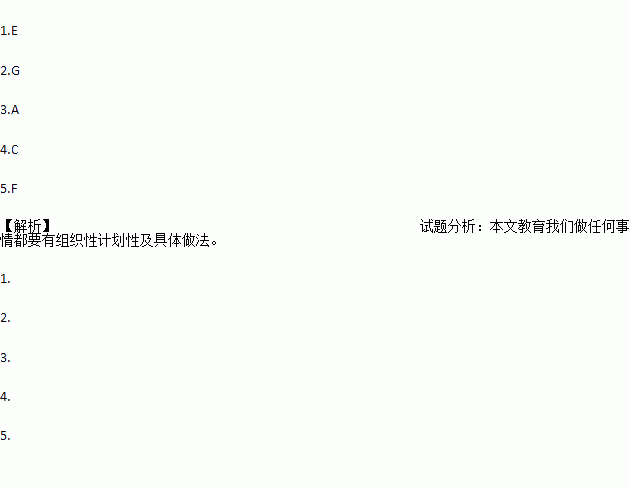题目内容
Being organized is an important skill for school and life.When you’re well organized, you can stay focused,instead of spending time hunting things down.
1.For schoolwork, it means having one notebook or place where you store all your assignment,so you know what you have to do and when. Keeping all your school work neat and in a specific place--these are the main parts of organization.
For home stuff, being organized means having a place to put your things and putting them back as you go.2.It means keeping your schoolbag,your shoes, and your clean underwear in the same places so you always know where to find them.
Planning is part of being organized, too. 3.Calendars,lists,and schedules can help you plan. You can buy or draw a calendar and keep it near your workplace. Making a schedule or “to-do” list for yourself is a good idea. Looking at your list helps you keep track of what you need to do. 4.Check off things when you’ve done them. Use your list to help you decide which thing is the most important to work on first.
5.But once you’re organized,it feels great.The less time you spend hunting around for things or panicking about homework,the more time you have for better things,like reading a good book or playing.
A. Planning means deciding what you will do and when you will do it.
B. First,you should get your schoolwork organized.
C. Add new things as you get assignments.
D. You will benefit a lot from a good habit.
E. What does it mean to be organized?
F. It takes some extra efforts to organize yourself and your stuff.
G. It means hanging your coat up instead of dropping it on the floor or throwing it on a chair.

